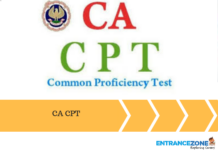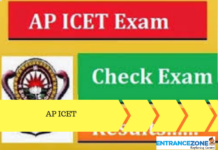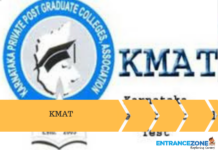Learn all about CBSE’s new competency-based questions for Boards 2023! Understand the importance of having a clear understanding of the topics and develop effective strategies to approach and succeed in these examinations.For the 2023 board exam, new changes in the exam pattern have been introduced by the Ministry of Education. According to the new exam pattern, there will be 40 percent competency based questions will be asked in the class 10th whereas CBSE class 12 will have 30 percent competency-based questions in the board exam 2023.
Admission Open 2023
- Top University & Colleges Official Links, Application & Scholarship Forms.
Check CBSE 12th Time Table 2023: Date Sheet Released @ cbse.gov.in
What are competency-based questions?
Answer: A competency-based question is a type of interview question used to assess job candidates’ skills, knowledge, and characteristics. These questions focus on how the candidate has acted in certain situations in the past, rather than asking them how they would act in hypothetical future ones. Competency-based questions are often used to hire for customer service or sales jobs, but can be adapted for any role.
Subscribe to Get Updated Information about CBSE Introduced Competency-Based Questions for Boards 2023 - Admissions
| Competency-Based Questions | Features |
|---|---|
| Definition | Competency-based questions are those that assess a student’s ability to apply their knowledge and skills in a real-world context. |
| Advantages | * Assesses a student’s understanding of concepts and their ability to apply them. |
Understanding the Newly Introduced CBSE Competency-Based Questions for Boards 2023
1. Improved Critical Thinking: Competency-based questions are designed to test a student’s ability to think critically and by introducing them in the CBSE exams, it will help the students hone their critical thinking skills which is essential for life-long success.
2. Enhanced Learning Skils: With competency-based questions, CBSE has aimed at making the learning process more efficient, effective and outcome based. It also encourages a deeper level of learning and mastery of concepts which is beneficial for the overall development of students.
3. Practical Relevance: By including competency-based questions in board exams, CBSE would be able to check how much the student has practically understood about a particular topic and how much he/she could apply that knowledge into different scenarios.
4. Improved Evaluation: As these kinds of topics do not require any sort of guesswork or ‘rote’ learning which makes the evaluation process easier for teachers as well as board examiners, since they can evaluate a student’s knowledge accurately without having to manually assess multiple choices and papers over again .
5. Better Future Prospects: As students have already experienced such an assessment format while preparing for college entrance exams or other entrance tests, introducing competent based questions at class 10 & 12 level will give a definite edge when competing with peers in local/global higher education market and job opportunities too!
6. Easier Curriculum Mapping: As these questions offer a significant reduction of subject content – particularly if unit marks don’t exceed 20 marks per subject – it gives teachers greater flexibility to revise syllabuses that better reflects their individual teaching style, examinations expectations etc., thus creating more creative curriculum mapping options going forward in educational space
7. Adaptability To Changes: By allowing students to prepare for competency based questions from early stages will make them more adaptable when faced with changing syllabus requirements or challenging assessment models as part of their education journey outside school/college beyond CBSE curriculum














